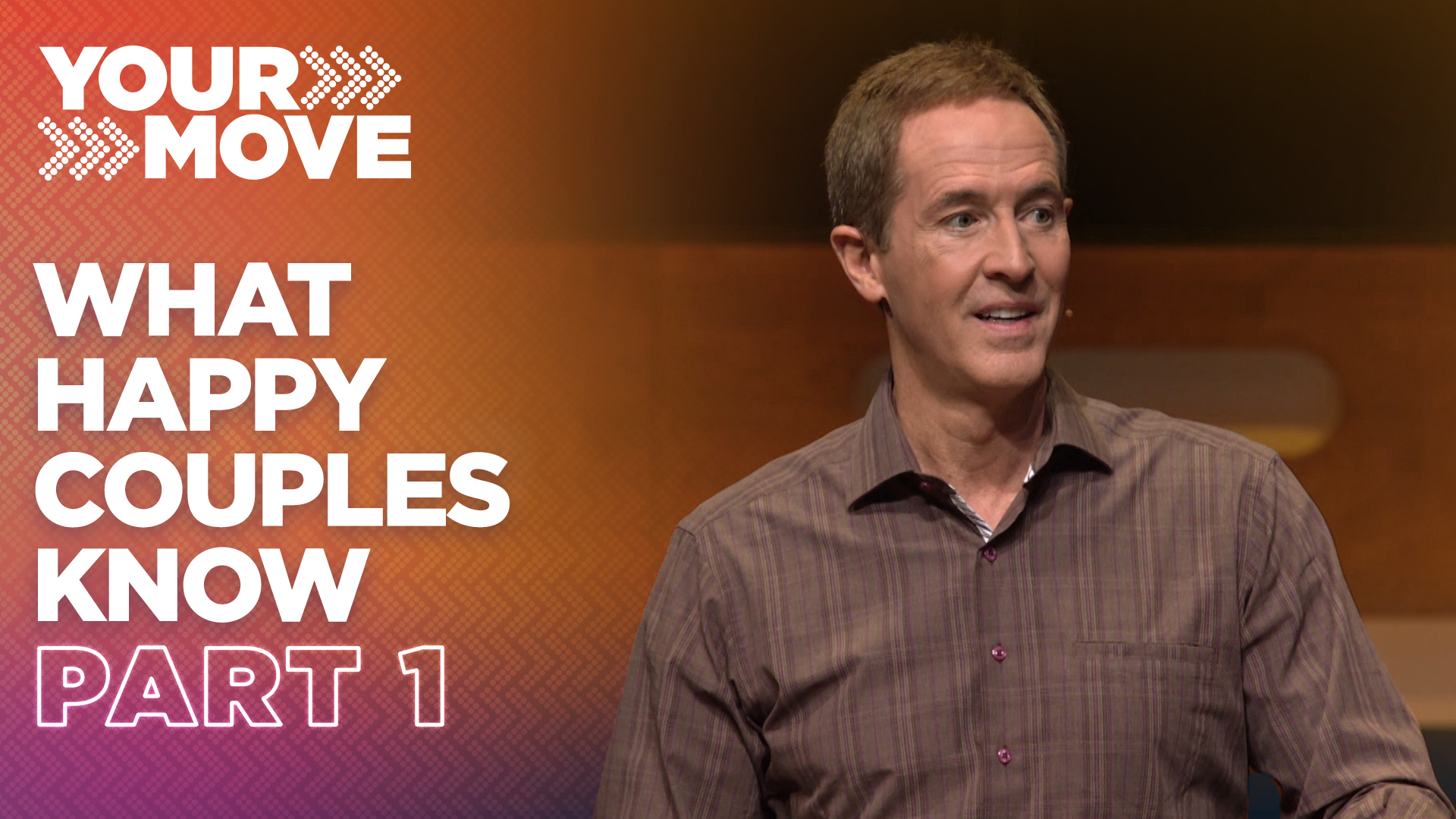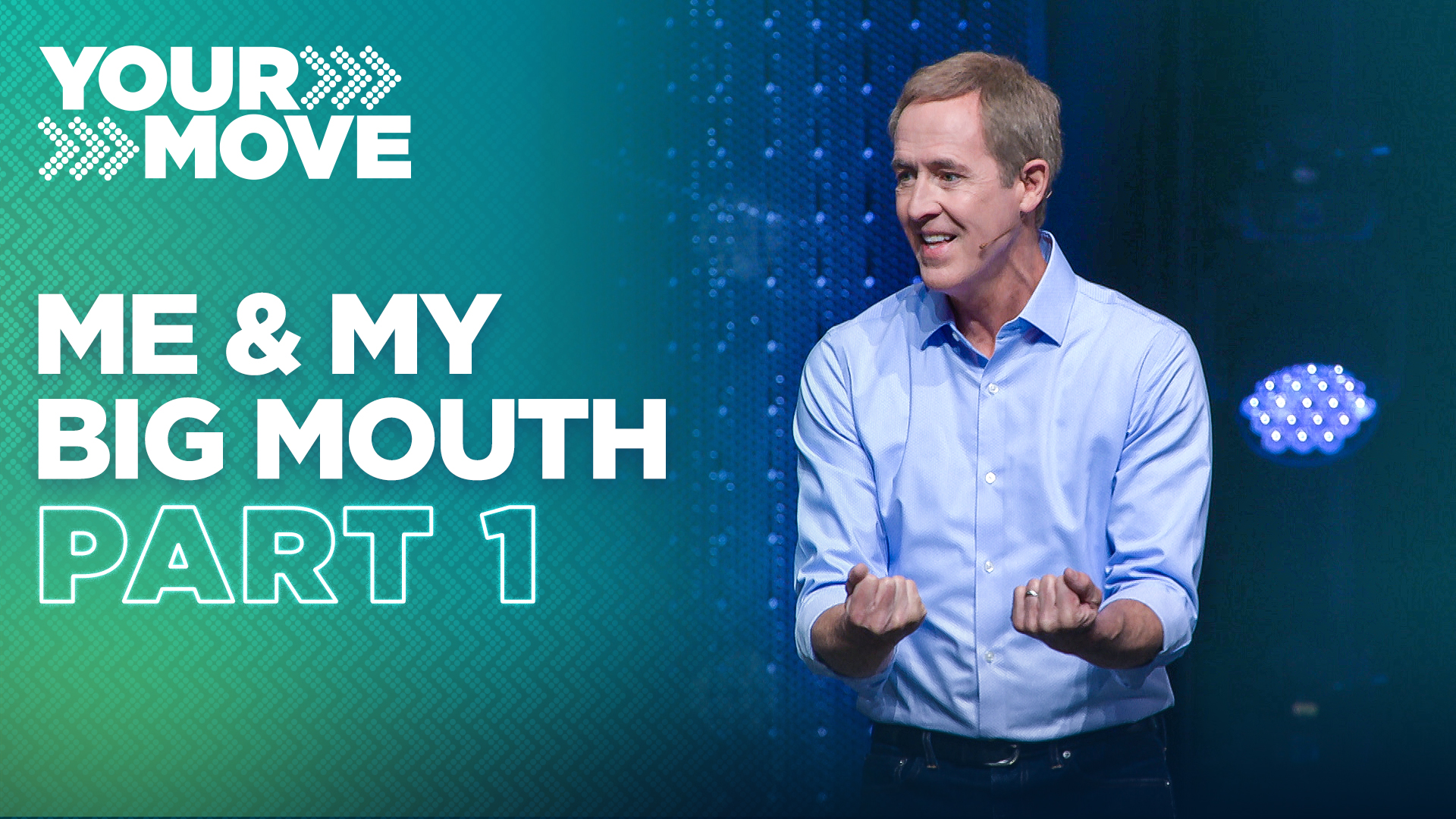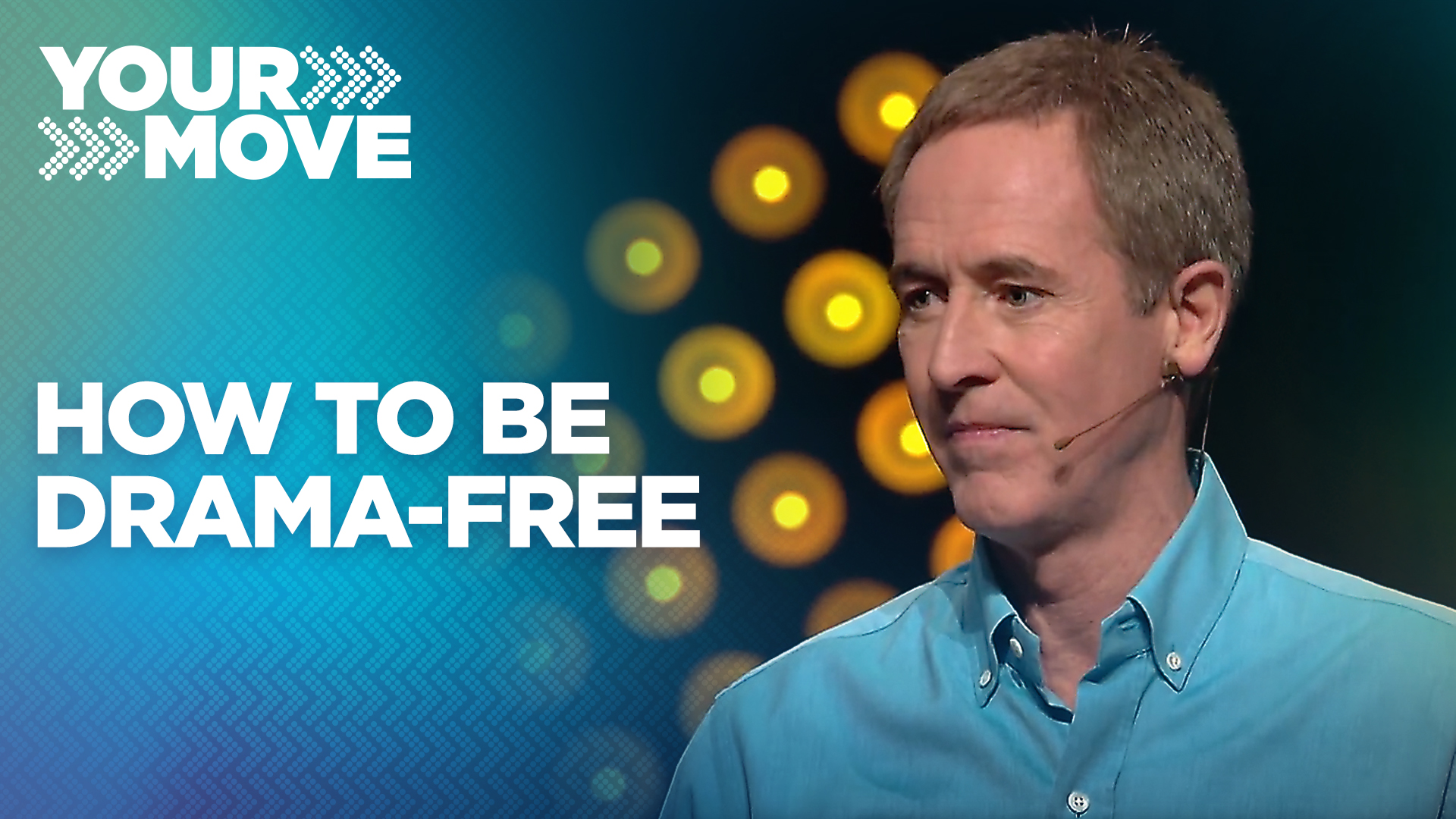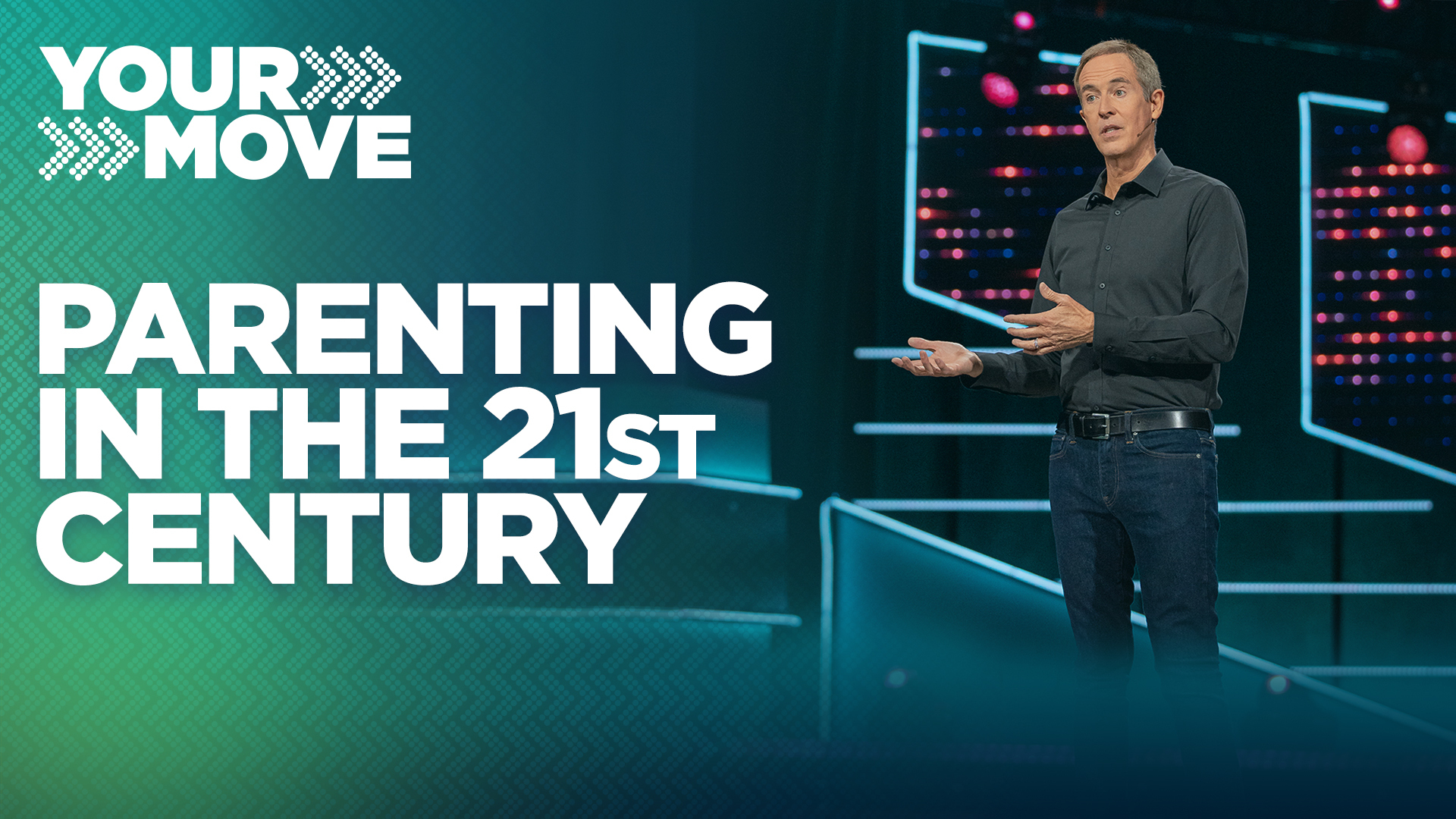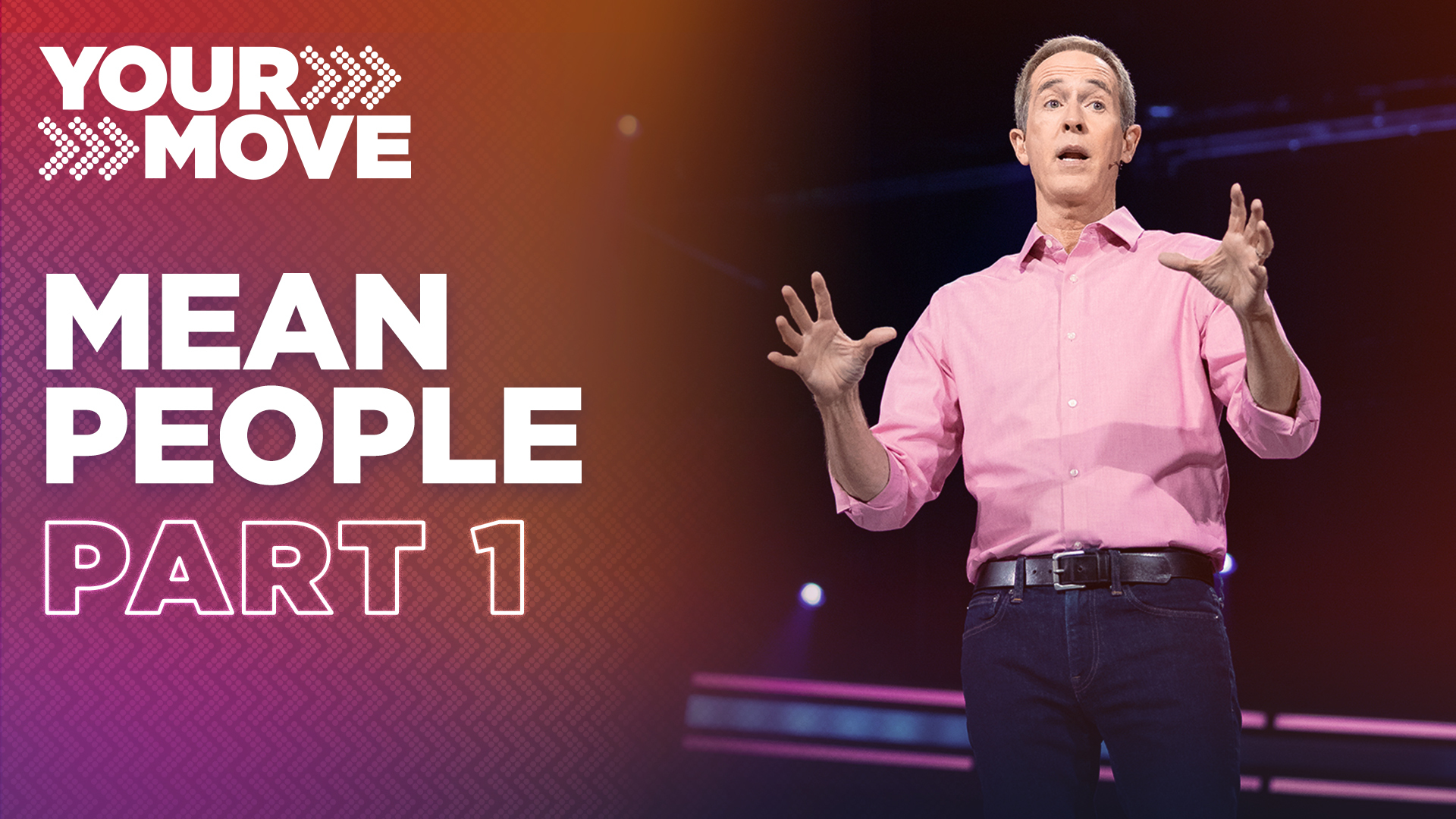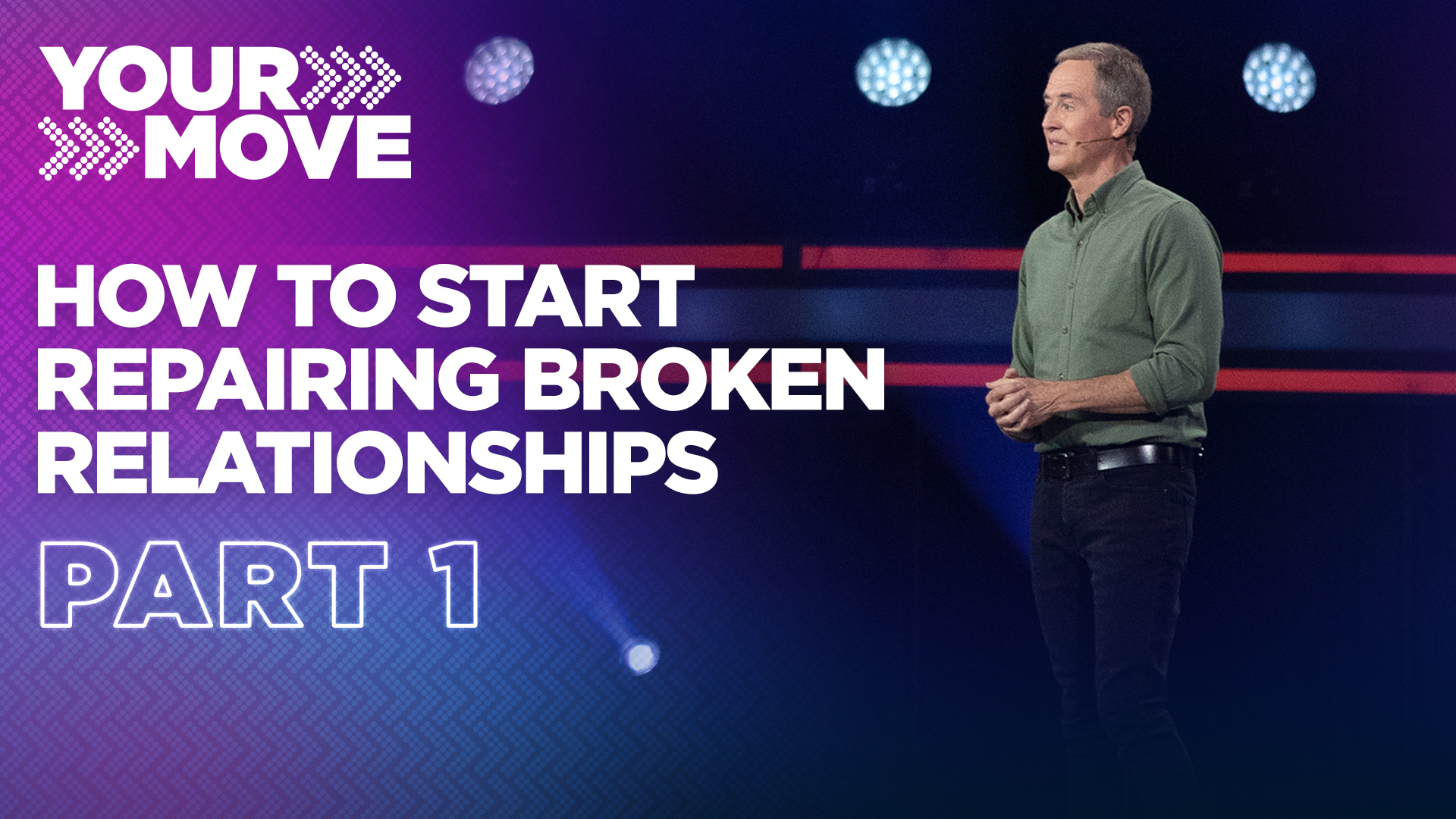We all have hopes and dreams, but what are we supposed to do when our hearts are broken and it seems like our dreams can’t come true?
- What is one dream from your childhood that didn’t work out the way you thought it would?
- Have you ever known someone who responded to heartbreak in a positive way? What’s different about them?
- The Prosperity Gospel assumes that if you do something for God, God will do something for you. Does this assumption influence your view of God? How would you respond to the idea that it is false?
- Have you ever anchored your faith to the fulfillment of your dreams? Is there value in embracing a version of faith that doesn’t guarantee a life without heartbreak?
- Do you believe there’s a purpose for you even when your dreams can’t come true? Why or why not?
NOTE: The following content is a raw transcript and has not been edited for grammar, punctuation, or word usage.
Today we’re wrapping up on the series we’ve been in: Love, Dates & Heartbreaks.
So today, I do wanna talk about this big word, “heartbreaks.” And I wanna tell you up front what my goal is today because I wanna be careful with this. My goal is to avoid any kind of empty patronizing promises. You’re too important than that. You’re too smart for that. And if you’re in a season of heartbreak right now, you’re like, “I can’t believe we’re talking about this. I’m on the front end of it, started yesterday. I’m in month two. My heart is just broken.” Here’s the two things that I want you to leave with today. And I hope I communicate this throughout our time together.
Number one, a broken heart doesn’t mean that you’re broken. A broken heart doesn’t mean you’re broken. I don’t want your broken heart to break you. And I don’t want your broken heart to leave you broken. And I don’t want your broken heart to break your spirit. And we’ve all seen what happens when that happens to individuals. The second thing I want you to know is simply this; that there is purpose for you even when your dreams can’t come true. There are dreams that we hope come true and wish will come true. And then there are certain seasons of life when we realize, “Uh-oh, that dream, not only is it not coming true, it can’t come true.” And I don’t want the dreams that can’t come true to squeeze the hope and to squeeze the life and to squeeze the sense of purpose out of you. And the thing that makes this whole conversation difficult, and the thing that makes it so personal for us is this, that all of us enter adulthood, all of us in adulthood with a picture of what we think life is gonna look like, a picture of what we want it to look like.
In fact, most of us, if we’re honest, we stepped into adulthood with a schedule, right? That we’re gonna graduate by a certain time, marry by basically between 18 and 25 or 25 and 35. Maybe you’re thinking, “I want them to start my own business or work for myself by… I wanna have children by… I wanna retire by… ” And as time goes by, some of our dreams do come true, right? And then some of our dreams come true for a while. And then again at some point, some of us realize, in fact, I think it, to some degree, most of us realize, that there are dreams we’ve always had or wishes we’ve always had that can’t come true.
Sometimes the reasons our dreams can’t come true, we end up with a broken heart, is because we’re partially to blame. But maybe you’re the exception, and you might very well be the exception. Maybe you did everything right. Maybe you followed the rules, you played by the rules, you lived your life by the book. But romantically speaking, a relationship never materialized, or maybe things looked promising for a while, things would look promising for a moment or during a different season or during a season, and then just as you thought things were really gonna work out you got that phone call or you intercepted that text or you found that note, and it turns out you were by the book, but he wasn’t. You were by the book but she wasn’t. And out of nowhere, out of nowhere, suddenly he wants to be “friends.” And you’re thinking to yourself. “Well, you are certainly more than a friend last weekend, weren’t you?” Or she discovers or she decides that she’s gonna live her life by a different “narrative”. She’s discovered a different narrative that doesn’t include you, in spite of those vows.
Maybe your second marriage is starting to feel a lot like the first marriage. And maybe when you hear me say that you think, “Second marriage, are you kidding? I would like to try a first one.” And maybe there was a season in your life when you thought for sure you were moving that way. And then to make matters worse, at times, it appears that everybody else, everybody else’s dreams are coming true. I mean, people far less deserving, people who didn’t do it right, people who didn’t wait, and now, and this is the insult to injury, right? And now, they’re living your dream. All of your dreams have come true for them.
And here’s the thing. And I don’t know how to say this in either way, if you’re in that season right now, if you’re in that season right now, I just want you to hear from me. I am so sorry. And I’m not sorry because I’m up here and you’re down there. That’s not why I’m sorry, and I’m not sorry because I feel sorry for you. You don’t need that. I’m so sorry because it is gut-wrenching and it is heartbreaking and there is no easy way out, and you already know this, there are no emotionally satisfying answers. There’s not one single thing I can say that’s gonna suddenly take away all the pain of a heartbreak.
Now, if you’re a Christian, what I’m about to say next, I’m not saying so that you’ll feel better and you’ll think, “Oh, I’m just all happy now, so happy that you said this.” If you’re a Christian, you should know that the men and the women who brought us the life and teaching of Jesus, the men and the women who delivered to this world the life and the teaching of Jesus. Let me put it and frame it in the broader context. The men and women who literally shaped Western civilization, because the teaching of Jesus, no one denies this, shaped Western civilization, these men and women were no strangers to broken hearts and dreams that would not, could not come true.
And as it turns out, they were not cursed, they were actually blessed. As it turns out, they weren’t broken, they were actually chosen. They did not choose the hand they were dealt. But they chose to trust the hand that dealt it. And they had the same questions you have and the same questions I have. And they had the same struggles you have and the same struggles I have, and the struggle was this: “God, you could have done this differently. God, you could have done for me what you did for her. God, you could have done for me what you did for him, but you chose not to.” And these fabulous extraordinary men and women accepted the hand they were dealt, and they accepted the hand that dealt it. And they were part of changing and shaping Western civilization. This is why I say that regardless of which of your dreams can come true and regardless of how broken your heart is, there is always a purpose for your life if you have the courage to keep your hands and your heart and your mind open to your heavenly Father, who chooses to accomplish His will through brokenhearted people, and people whose personal dreams can’t come true.
Maybe the second or third most famous person of all who experienced this is someone we’ve all heard of, Mary, the mother of Jesus. A prophet came to her after Jesus was born, when Jesus was very, very, very, very, very young, and the prophet came to her and said, “Mary, I have a word from God for you, and here is God’s word to you, Mary, a sword will pierce your soul, a sword will pierce… ” And I bet she thought, “Wait a minute, that’s not the little sticky note I have on my mirror at home. The sticky note I have on my mirror at home is that the Lord says, ” I have plans for you not to hurt you but to bless you,” And the prophet says to Mary, “No, here’s God’s word to you, a sword will pierce your soul but you’ve not been abandoned, you’re not cursed, you are blessed among women.”
And Mary’s response to the realization that her life would be nothing like she planned was this: “I am the Lord’s servant.”
Or Jesus, on the night of his arrest, we all know this story, who prayed and he said, “God, if I wrote the script, the script wouldn’t look like this. And God, if I got to choose the plans over my future, it wouldn’t look like this. But if you would, could we just change the plan? Could you take this cup from me? But just so you know, heavenly Father, not my will, but yours be done.” And see, I’ve seen what you’ve seen. I’ve talked to people like you have, maybe this is your story who in the midst of a heartbreak, in the midst of them realizing their dreams aren’t coming true, and God isn’t answering their prayers, they just lose faith and they give up and they say yes to anyone.
And they say yes to anything. And they say yes to the next opportunity even when they know it’s not the best opportunity, even when they know it’s not the wise thing to do in that season of life. I’ve seen what happens when people try to make something happen, and you know the outcome of that. Again, maybe it’s part of your story. Their desperation leads to greater despair. But I’ve seen the flip side of it, just like you have. And maybe this is your story. Some of the most remarkable people I’ve ever met. In fact, I guess I could say the most remarkable people I’ve ever met are people whose dreams didn’t come true, people whose lives didn’t play out the way they thought it would. But the people that somehow some way, and this is our challenge, remained open and available to the possibilities of what God had for them in spite of the fact that it did not line up with their plans for their lives. You’ve met these people. They’re remarkable. They refuse to become cynics. They refuse cynicism. They refuse bitterness, and they refuse labels.
These are the people who’ve learned something and identified something in them and have resisted this thing in them that I think all of us have in us a little bit, because I think part of our problem is, there is a little prosperity gospel in all of us. And you know what the prosperity gospel is. The prosperity gospel is give God one, he’ll give you 10. The prosperity gospel is there’s a little bit of it in all of us that kinda goes like this: Since I did, well, then God must! Because isn’t this a bargaining chip? Isn’t this an equation? Isn’t the way that life works that if I do the right things, the right things happen for me? And if you were raised with a version of religion or if you were raised with a version of Christianity that came in this wrapper, you’ve already discovered that this version is very, very easy to walk away from. It is very difficult to remain faithful when God doesn’t uphold his end of the bargain.
But what you should know is that is not the original version. That’s the version that’s easy to leave. The God who doesn’t allow bad things to happen to good people. The God who doesn’t allow bad things to happen to good people, that God does not exist. But that has never been our God. And that is not God the Father that Jesus introduced the world to. In fact, in the center of Christianity, I’ve told you this before, the center of Christianity stands the best possible person. And the worst possible thing happen to the best possible person, because Jesus did not come offering us an equation, He offered us an invitation. And His invitation, as much as we wanna push this away, makes more sense the older you get and the longer you live and the more people you meet. His invitation was to lose our lives, so that we could actually find life. And then he modeled it by laying down His life and taking it up again.
And then he extended his invitation. And his invitation is this, “Follow me.” Follow me not because of what he would do. Jesus said, “I want you to follow me because of who I am and what I’ve already done.” And this has been the standing invitation since the very beginning of Christianity. This is the invitation that has been accepted by so many broken-hearted people, people whose dreams would not come true. And here’s what they discovered: This is where peace is found. This is where striving ends. This is how you live your life with your hands wide open even when your dreams won’t come true and your heart is broken.
David, as in David and Goliath, David as in King David, as in David the King of Israel, David learned this the hard way. And towards the very end of his life, when he was in his 60s, when he was in his 60s, he makes an extraordinary, extraordinary statement that I think summarizes this whole idea maybe better than anything else in the Old or the New Testament. But the statement that he leaves us with only makes sense if you know his story.
He shows up in the pages of history as a shepherd boy. And one day the Prophet Samuel comes to his house. And he says, “David… ” He says this in front of his whole family, “David, God… ” David is a kid. “David, God has chosen you to be the next King of Israel.” But of course, Israel already had a king so that posed a problem. And then David went back to keeping sheep. And then one afternoon, David goes to check on his brothers because his father sends him to check on his brothers who are all soldiers in the army of King Saul. And there was that extraordinary event that most of us know about where Goliath kept coming down to the valley of Elah and taunting the nation and taunting the people of Israel and taunting the armies of Israel. And David who’s maybe 15 or 16 at the time sees this in a completely different way and he realizes he’s not taunting our armies, he’s taunting our God and our God is bigger than the Philistine God. And he marches down into the valley and he slays a giant.
And overnight he becomes almost a living legend, a folk hero. Eventually, he’s accepted into Saul’s family, and King Saul offers one of his daughters to David. So imagine, he marries the king’s daughter. He’s already been anointed the next king, now, he’s married the current king’s daughter. He is set for life. But then Saul realizes he’s made a terrible mistake bringing this legend into his family, because people loved David more than they love Saul and they loved David more than they love Saul, they’re gonna love David more than they love Saul’s son. And Saul wants his son Jonathan to be the next king. And so Saul kinda loses his mind and he becomes very angry, and he tries to kill David, and David flees this capital city, and suddenly he runs for his life, he’s a fugitive, and his future goes dark and he’s alone, and he’s abandoned, and his heart is broken, and he doesn’t know what to do, and he panics.
He goes to a little village called Nob. Nob was populated primarily by priests. And he has a friend there, a priest named Ahimelech, and he comes to Ahimelech and he lies, he says, “Ahimelech, I’m here on the king’s business.” And of course, Ahimelech says, “Where’s your men?” “Well, they’re somewhere else.” “Well, David, you’re all by yourself. “I know it’s unusual for me to be by myself and by the way, I was in such a hurry to do the king’s business, I didn’t bring any weapons. Do you have any weapons?” Here’s exactly what the text says, “Do you have a spear? Do you have like a spare spear or a sword laying around here?” And Ahimelech’s looking at David and goes, “Something is wrong with this picture. You’re David. I mean, you’re David and Goliath, David. You’re the king’s son-in-law, something’s wrong. I haven’t brought my sword. You haven’t brought your sword or any other weapon, because oh, the king’s mission was so urgent.” He just lies because he panics and he lies, and isn’t that what we do when our hearts are broken? Isn’t that what we do when suddenly things are slipping out of control? We panic and we’ll say whatever we need to say to have our way.
And then something very dramatic happens. See, this is so dramatic, I can’t even create the energy or the emotion around this moment. The priest, Ahimelech, says, “Well, there’s just one weapon here, it’s a sword. It’s a sword you’re familiar with, David. The only weapon we have here is the sword of Goliath, the Philistine who, by the way, you remember David, you were there, whom you killed in the Valley of Elah, it’s here.” And suddenly Ahimelech brings out a visual aid, a reminder of God’s faithfulness to David in the past. A reminder that God had made David a promise, a reminder that God had invited David to trust Him even when life doesn’t make sense, because that’s this point in his life, it just didn’t make any sense. But here’s where David is in the moment. Here’s where maybe you are in the moment. David didn’t look him back. David’s looking forward, and it’s dark and it’s hopeless, and he’s helpless and he decides to take matters literally into his own hands.
And David said to the priest, “There is none like it; give it to me.” But instead of Goliath’s sword protecting David’s life, it sealed Ahimelech’s fate, because it was reported back to King Saul that Ahimelech had aided the king’s enemy, and Saul shows up with a small army and he accuses Ahimelech of aiding and abetting his enemy, and Ahimelech’s like, “Wait a minute, he’s your son-in-law, he’s David, he’s David and Goliath’s, David, of course, I aided him, why wouldn’t I?” And King Saul was so angry, he had Ahimelech cut down by the sword. Every single priest in Nob cut down by the sword, their wives, their children and the text says even the infants, he killed everything in the village, he was so angry because he was so jealous. And when David gets news of what happened, he was devastated and suddenly his life and suddenly everything about his life just became exponentially more complicated because everyone knew he lied and he was to blame for what happened in Nob.
Time goes by, David becomes king, an incredible story. We find David in his 60s, and he finds himself in an eerily similar situation, his favorite child, his favorite son, Absalom. Absalom, who would probably be the king after David died. Absalom, who David just loved far and above all of his other children. Absalom is so angry with his father because his father didn’t respond to the rape of his sister, that Absalom decides to go out and undermine David’s authority. And it’s a long interesting story, you should read on your own how he does this, but for four years Absalom plots against his father and he keeps it a secret. And he raises his own army and he steals the loyalty of the people. And then on a given day, he announces himself king and he marches on the capital city to take the throne away from his father. And to spare the citizens, and to spare the city, and to spare the Ark of the Covenant and everything that Jerusalem represented. David, in a hurry, packs up his family, packs up those who are closest to him, and he leaves and abandons the city.
And the text says that when David and his entourage of families left the city of Jerusalem, that the entire countryside came out to see this. The whole countryside wept aloud, as all the people with David passed by, because he was their King and here he was leaving the city, here he was giving up his throne. King David also crossed the Kidron Valley and all the people moved on toward the wilderness, the wilderness, the very same wilderness he had fled to when he was a much younger man.
Have you ever felt like that was your life? Then suddenly nothing’s like it was; all the security gone, everyone you know gone, everyone you leaned on before gone, and you’re headed into the wilderness. Have you ever felt like you’re headed back into the same wilderness again? This is the story of famous King David. And then here’s the twist. This sets us up for what David would say that’s so powerful. Here’s what happened. Zadok was there, too, he was a priest, and all the Levites, all the people had attended to the ceremony surrounding Jewish and Hebrew worship, they were with him as well, and they were carrying the ark of the covenant of God. So on their way out of the city, Zadok is like, “Hey, guys, get the Ark of the Covenant.” Now, as you may know, the Ark of the Covenant was where the original 10 Commandments was housed and some of these very religious and very important artifacts of early Hebrew religion. But the most important thing about the Ark of the Covenant is that it represented the presence of God, that whoever had the ark had God. Whoever had the ark had the blessing in the presence of God.
So Zadok, thinking he’s doing a good thing, saying, “Hey, if the King’s leaving the city, God needs to go with them. If the King is leaving the city, we need to take the ark out of the tabernacle and the ark needs to accompany the King.” This was their way of saying, as a big visual, it was their way of saying that God is with us, God is on our side, God is not with the rebel, Absalom, God is with David, God is with the King. It was a way to subtly manipulate outcomes. But David had learned his lesson and he was through trying to control or manipulate outcomes. he was done with that.
Here’s what he said, “When the king saw that the Ark of the Covenant was part of the entourage leaving the city, he said to Zadok, ‘Take the ark of God back into the city. No more manipulation, no more negotiation, no more trying to get God to do my bidding. Take the ark, take the presence of God back to the city of Jerusalem.” But what he said next is for you and what he said next is certainly for me, here’s what David said, “If I find favor in the Lord’s eyes, He will bring me back and he will let me see it in his dwelling place again. I have stopped all negotiation with the God of all creation. I’ve tried to manipulate, I’ve tried to have my way, I’ve tried to force my way, I’ve tried to make things happen, I’ve tried to keep things from happening, I’m done with that. This took me by surprise, it did not take God by surprise.”
“But if he says,” speaking of God, “But if he says, ‘I’m not pleased with you, David,’ then I am ready. If I’ve done something to bring this on myself, I will acknowledge that. Let him do to me,” echoing the words in the future of Mary and so many others that would follow. “Let Him do to me whatever seems good to him. Zadok can’t believe it, it’s like, “Leave the ark with your son? Leave the ark in the city? Leave the presence of God? You are not only leaving the city, now you’re leaving the presence of God and you think somehow this is gonna turn out? And the King said to Zadok, he looked at Zadok the priest, he said, “Do you understand?” Because apparently Zadok, he was staring at him like, “What? Go back to the city with my blessing? You’re not abandoning me. No one will accuse you of abandoning the king. I’m giving you my blessing. Go back into the city.”
And so, Zadok and Abiathar took the ark of God back to Jerusalem and stayed there. But David continued the journey. But David continued up the Mount of Olives weeping as he went. His head was covered and he was barefoot, mourning with a broken heart. Now he’s lost three sons, his future is dark, none of his future dreams will come true. but somehow, some way, and you know people like this, he had not lost his confidence in God. He didn’t abandon God even when it was so clear that God had clearly abandoned him. He had seen where fear and panic and manipulation and control leads. This time, he chose not to reach for Goliath’s sword. This time, he chose not to take matters into his own hands. This time, he chose not to try to make something happen. This time, he did not anchor his faith to the fulfillment of his dreams. Because when you anchor your faith in God to the fulfillment of your dreams, you set yourself up to lose your confidence and faith in God.
So here’s the invitation to all of us. The invitation is, would you and would I, like David and like Mary, and honestly like many of the people around you, people who’ve lost marriages, people who’ve lost kids, people who’ve lost just about anything you can imagine. Would you be willing like David and like Mary to open your hand and declare with David, “Here are my dreams and here are my plans. But they’re my dreams and they’re my plans, you do with them as you wish and do to me whatever seems good to you. No bargaining, no equations, no negotiating. You know my desires, you know my hopes and my dreams. In fact, the New Testament teaches us and tells us that we can bring our hopes and our dreams, we can cast all of our cares on God, knowing that He cares for us and knowing that He cares what’s important to us. You know my desires, but I acknowledge your right to rule.”
Because the truth is this, even if your heart is broken, it doesn’t mean you’re broken. Even when your dreams can’t come true, it doesn’t mean that God doesn’t have a significant purpose for you. At the center of our story, as Christians, stands the story of the best possible man who deserved the best possible life and chose the worst possible end for us. It was his way of saying that even when your dreams can’t come true, I still love you. And I still have a plan for you and I know what’s best for you.
So when your heart is broken, when your dreams cannot come true, when my heart is broken, when my dreams can’t come true, that’s our cue not to run, not to manipulate, not to take matters into our own hands, not to reach for Goliath’s sword. But instead to lean in, to look up, and to reach out. The very opposite of what we feel like doing in those moments, right? To lean in, to look up, and to reach out, to the God who has your whole world in his hands.
This is what we’ve all been invited to, when it dawns on us that our dreams aren’t coming true, that they can’t come true, that God still very much cares about you.


